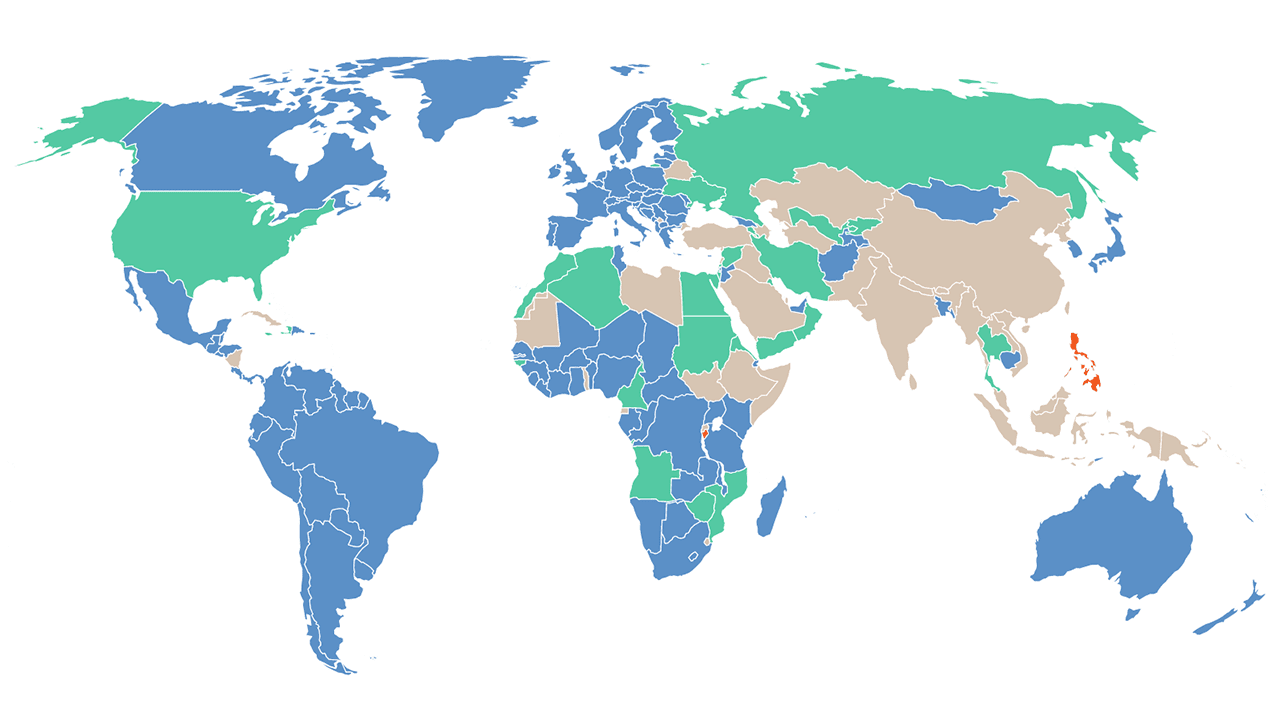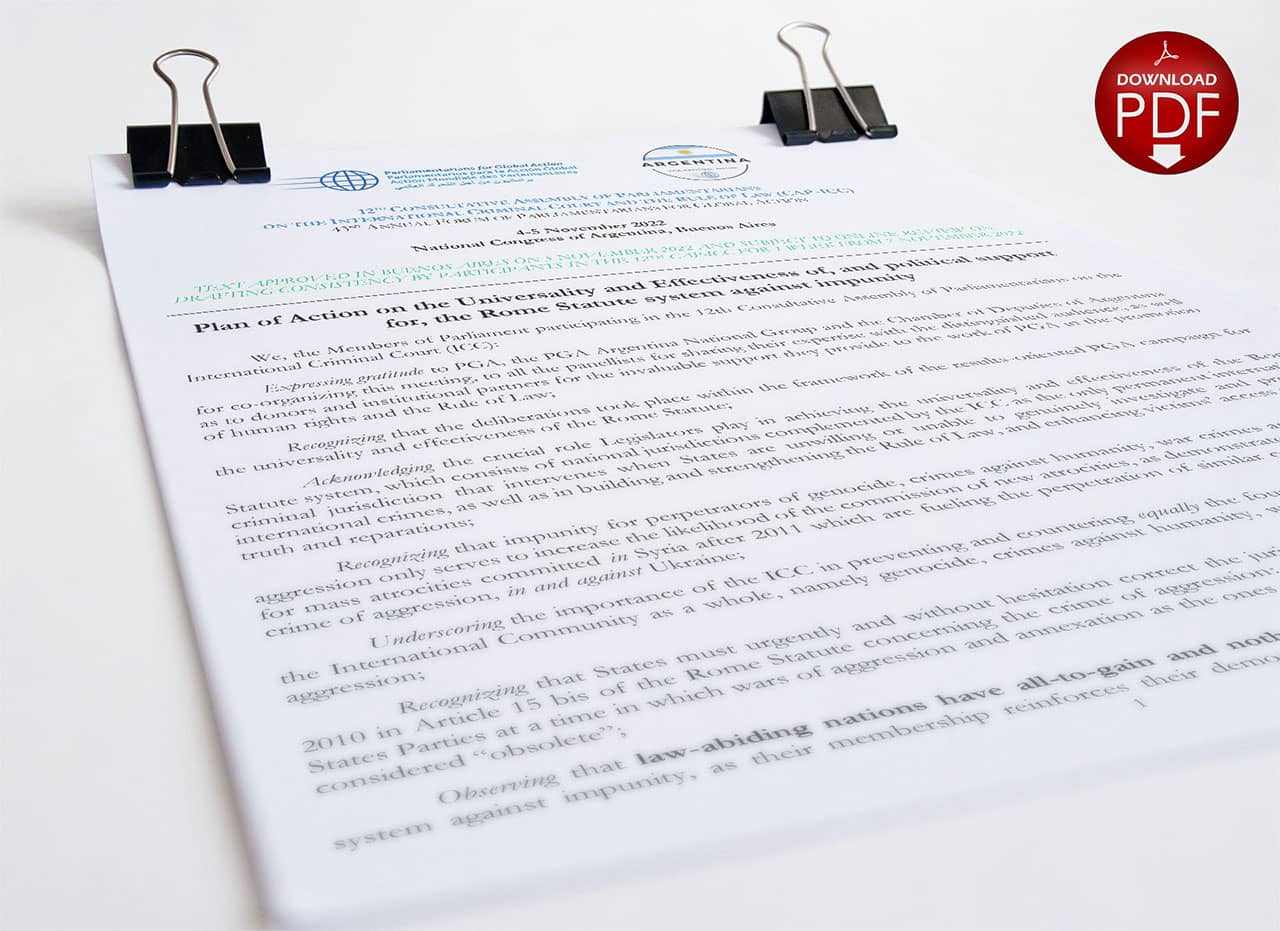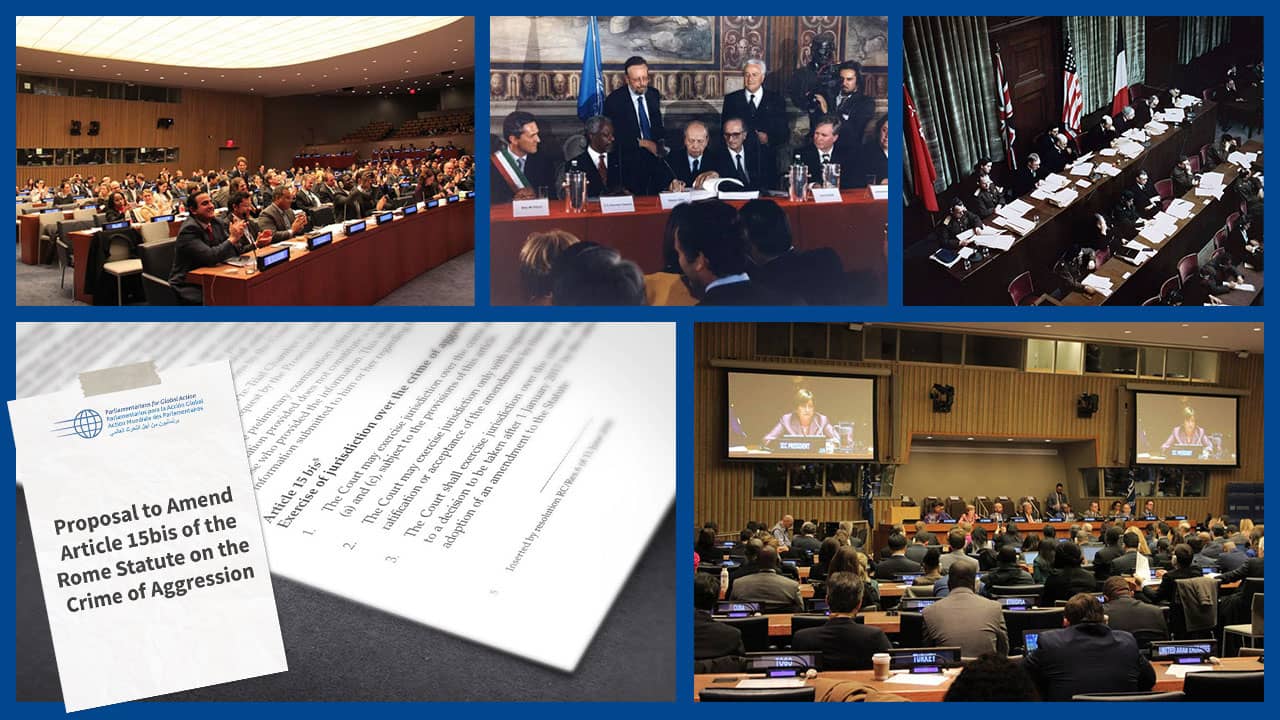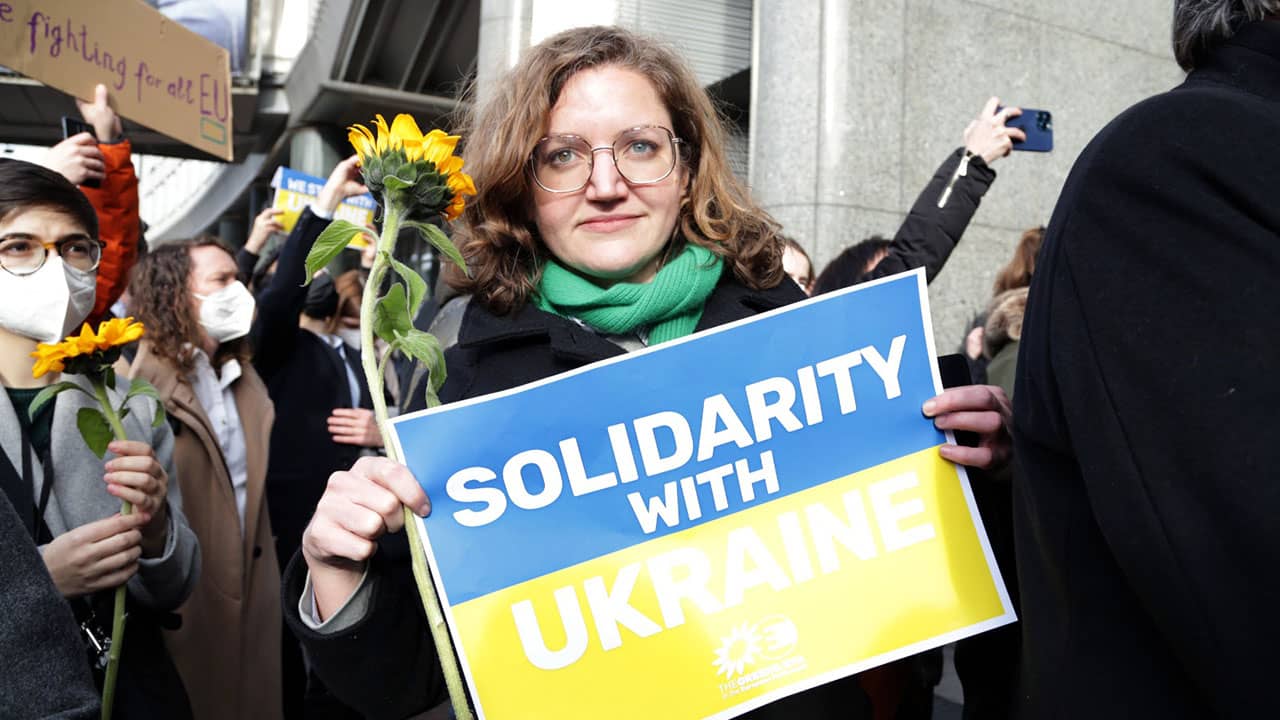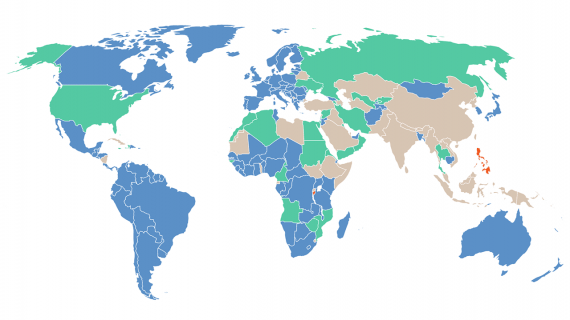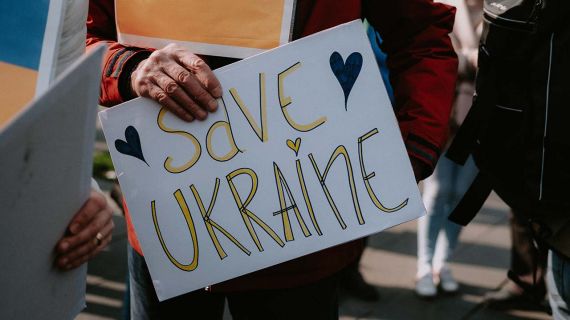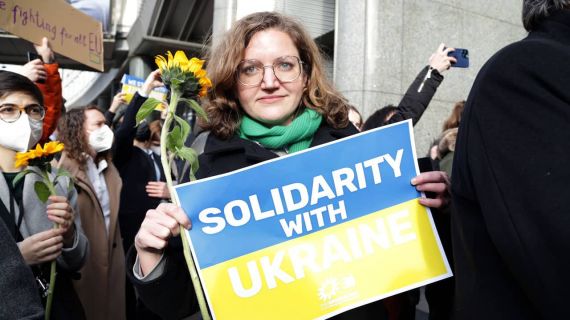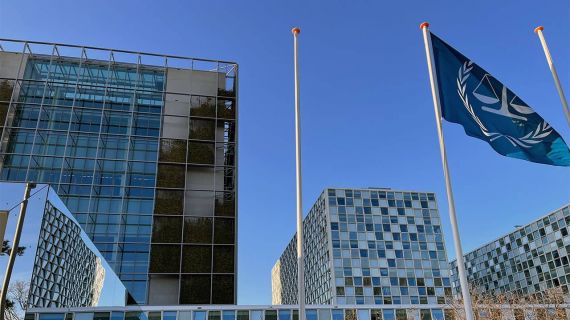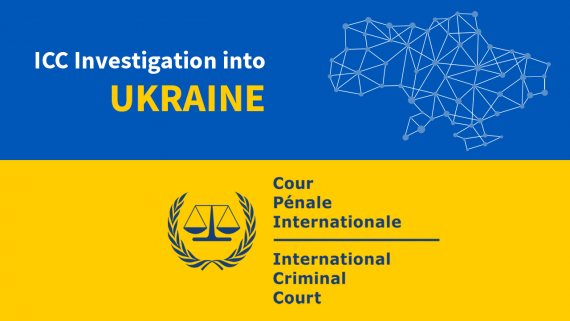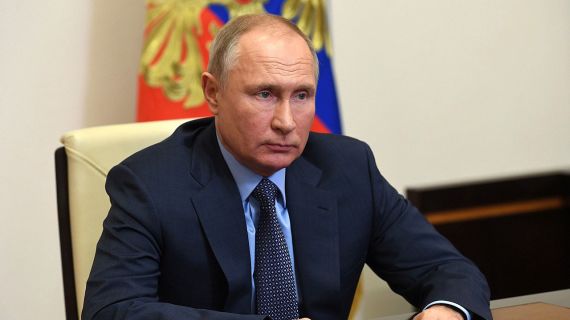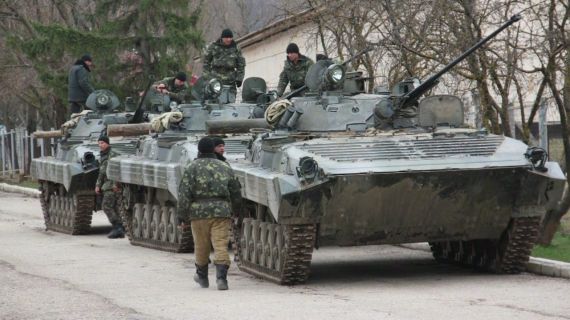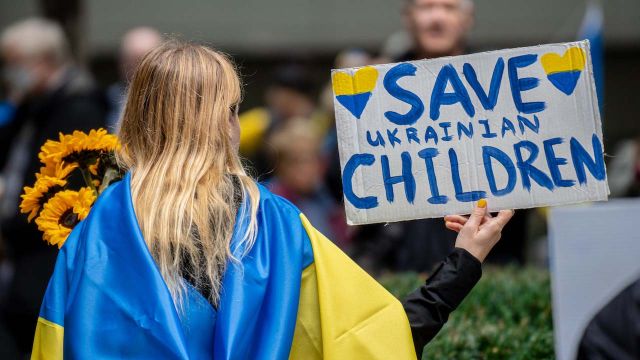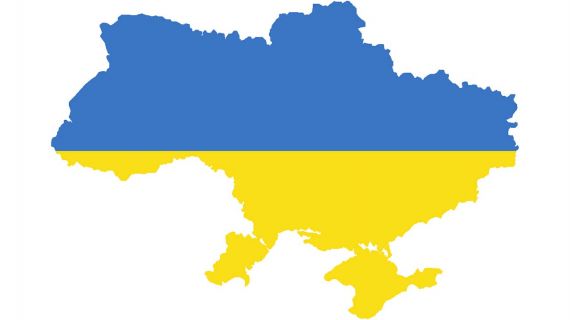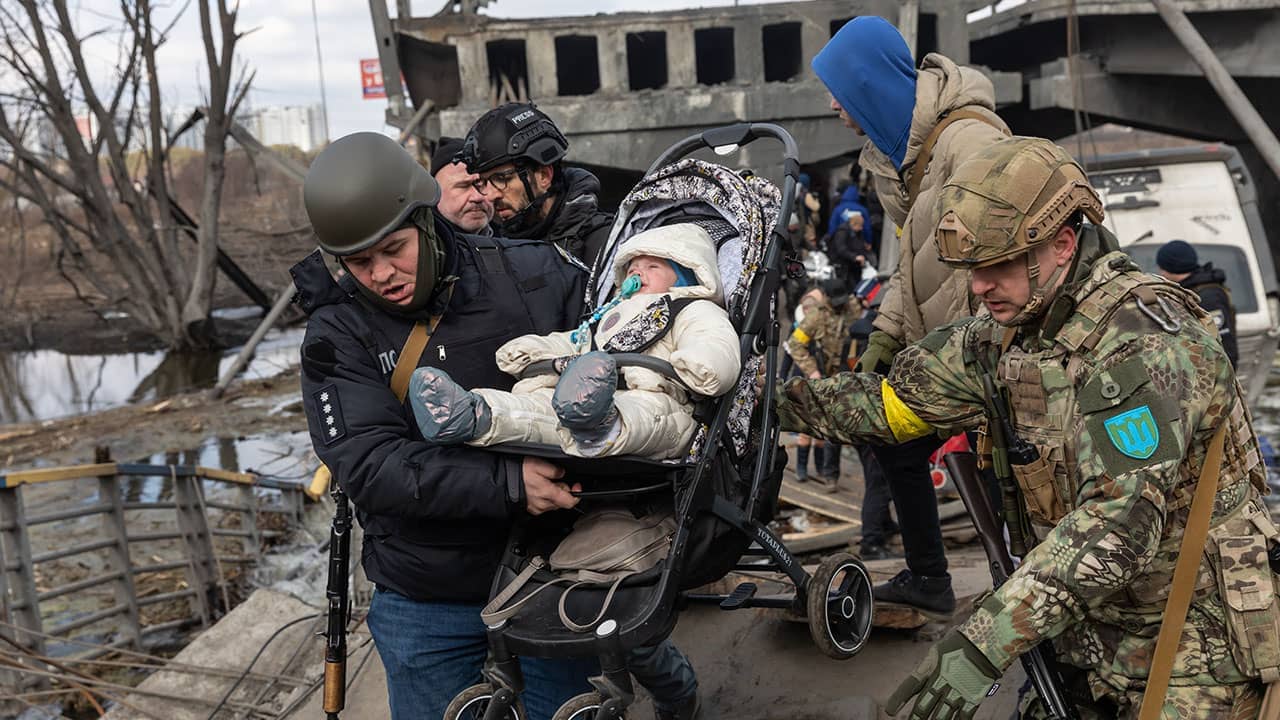
New York / The Hague / Kyiv
One year has passed since the Russian Federation launched its textbook example of aggression against Ukraine’s sovereignty and territorial integrity. In the early morning of 24 February 2022, President Putin announced the invasion of Ukraine as a “special military operation” in complete disregard of international law and the Charter of the United Nations.
Since then, Ukraine has become a “crime scene”, resulting in the deaths and injuries of thousands of individuals, including civilians. 6.5 million people have been internally displaced, and 8 million have sought asylum abroad, causing the separation of millions of families. The conflict has also resulted in the massive destruction of infrastructures, with estimated damages of $138 billion as of December 2022, including through a systemic targeting of civilian facilities. By documenting summary executions, unlawful confinement, torture, ill-treatment, the use of rape as a weapon of war, enforced disappearances, deportations, forced adoptions of children (subjected to systematic enslavement), and massacres, the UN Independent International Commission of Inquiry and civil society organizations point at the commission of atrocities – the root cause of which is the commission of a crime of aggression in the first place – that may amount to crimes against humanity, war crimes, and/or the crime of genocide.
The war of aggression against Ukraine is primarily an aggression against its civilians, causing global consequences. While the front line remains unstable, with experts expressing their concerns about an escalation of the conflict, the nuclear threat looms, intensifying tensions in the region. In parallel, the war has caused a profound economic and energy crisis in Europe and beyond, and plunged a part of the world into a situation of food insecurity. The environmental impact of the war is also at a high cost, with profound consequences on local ecosystems that may amount to the crime of ecocide as recognized in the Criminal Code of Ukraine.
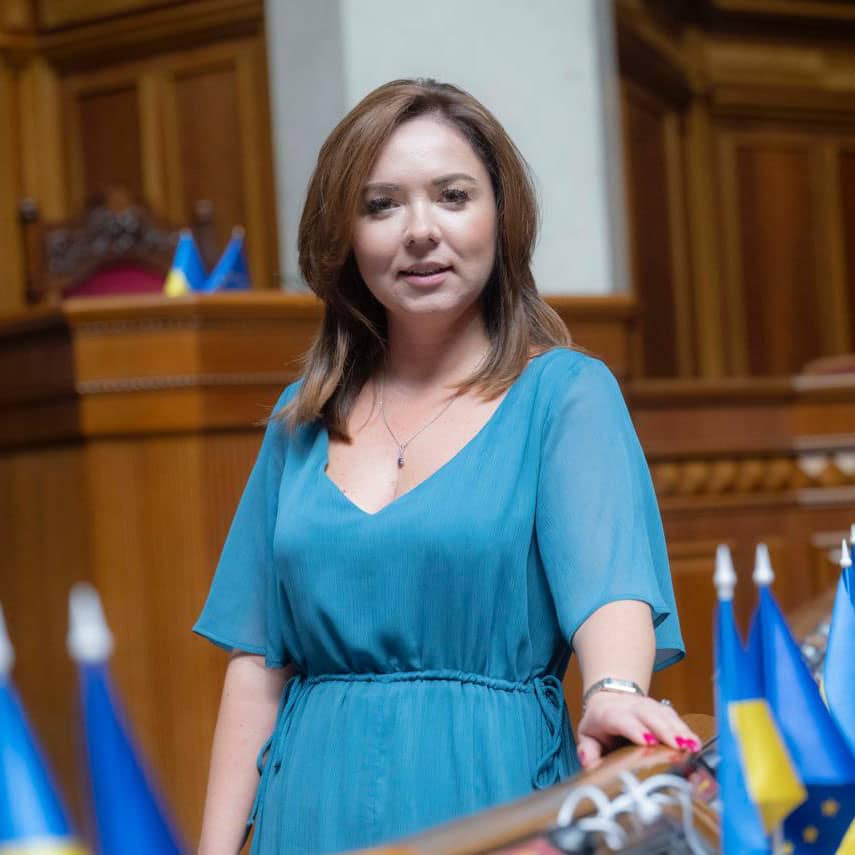 The stakes are high, not only for Ukraine, but for the future of the entire world: we have the choice to decide between a world governed by international law, or one where impunity reigns. While Ukrainians are paying a high price for their pursuit of freedom and democracy, the international community must remain united and send a strong message. We must uphold universal values enshrined in the UN Charter that bind us all, and work towards establishing long-term peace in Europe and the world.
The stakes are high, not only for Ukraine, but for the future of the entire world: we have the choice to decide between a world governed by international law, or one where impunity reigns. While Ukrainians are paying a high price for their pursuit of freedom and democracy, the international community must remain united and send a strong message. We must uphold universal values enshrined in the UN Charter that bind us all, and work towards establishing long-term peace in Europe and the world.Dr. Galyna Mykhailiuk
MP (Ukraine)
This can only be achieved by implementing justice and accountability, including through the strengthening of the Rome Statute system. More than ever, Ukraine needs international support, and I call on my colleagues worldwide to gather, in a collective effort to rebuild trust in a rules-based international order. Dr. Galyna Mykhailiuk, MP (Ukraine), Chairwoman of the PGA Ukraine National Group
The shock provoked by the aggression of the Russian Federation sparked an unprecedented wave of strong reactions from States, as well as regional and international organizations. As early as 2 March 2022, the international community condemned the aggression of the Russian Federation by adopting a resolution of the UN General Assembly, with 141 Member States in favor, which unambiguously demanded “that the Russian Federation immediately cease its use of force against Ukraine” and “immediately, completely and unconditionally withdraw all of its military forces from the territory of Ukraine.”
On the very same day, the Prosecutor of the International Criminal Court (ICC) announced the opening of an investigation into the situation in Ukraine, following a coordinated joint referral by 39 States (now 43); and on 16 March 2022, the International Court of Justice ordered provisional measures to suspend all military operations in Ukraine. Despite their significance, these actions have not been sufficient. One year later, UN Member States met again in a Special session to reiterate their call and adopt, with 141 Member States in favor again, a UN General Assembly resolution that defends the principles enshrined in the UN Charter and seeks to restore a just and lasting peace in Ukraine.
On this tragic anniversary, PGA would like to reiterate its commendation of the incredible resilience and courage of Ukrainians in the face of the horror of atrocities and immense suffering. Working with its Ukrainian members, PGA has been engaged in achieving accountability for Ukraine, from advocating for the ratification of the amended Rome Statute and its domestic implementation to exploring avenues to ensure the swift prosecution of the crime of aggression. For PGA, affirming the principle of individual criminal responsibility for this crime must be central to any accountability action: the impunity that has surrounded the crime of aggression for years and in several situation-countries has resulted in immense suffering and acted as an incentive for the perpetration of more atrocities. Yet, the Rome Statute’s restrictive jurisdictional regime on the crime of aggression currently prevents the ICC from prosecuting the crime committed against Ukraine. Unlike the jurisdictional regime applying to the three other core Rome Statute crimes, the ICC can only exert jurisdiction over the crime of aggression if both the aggressor as well as victim State are not only parties to the Rome Statute but also have accepted the Amendment on the crime of aggression adopted in 2010 in Kampala. With Russia not falling under either of these criteria, seeking accountability for this crime at the ICC remains out of reach, also on account of the inability of the UN Security Council to refer this situation to the ICC Prosecutor in light of the veto power of the Russian Federation within the Council itself.
While supporting the prosecution of the crimes committed in Ukraine through both domestic efforts as well as through a Special Tribunal of international character, PGA remains convinced that to achieve effective and sustainable international justice, the ICC, as the first permanent global court with jurisdiction over most serious international crimes, should possess the legal capacity to prosecute leaders involved in the commission of the crime of aggression against Ukraine, from its planning to its launching and execution. Peace can only be achieved through justice, and justice will only be served when the impunity for the crime of aggression will be ended.
For this reason, PGA proposes to amend Article 15 bis of the Rome Statute on the crime of aggression aimed at aligning its jurisdictional regime with the three other core crimes under international law. The amendment would enable the ICC to try individuals who are nationals of a non-party State, such as Russia, if they committed the crime of aggression on a territory of a State Party which has accepted the jurisdiction on the crime of aggression. This proposal would not affect the current status quo concerning the States Parties that have not accepted the jurisdiction over the crime of aggression.
As 2023 marks the 25th anniversary of the creation of the ICC, PGA calls again on Ukraine and other non-States parties worldwide to ratify the Rome Statute and its amendments, including the Kampala amendment on the crime of aggression, and to fully implement them domestically. While PGA appeals for the immediate cessation of hostilities in and against Ukraine, the organization also urges stakeholders to take action at the national, regional, and international levels to uphold universal principles for a rules-based international order, and to work towards a more equitable, safe, sustainable, and democratic world. It is crucial that we continue to join efforts in advocating for accountability worldwide, as we strive towards a lasting peace in Ukraine and beyond.


